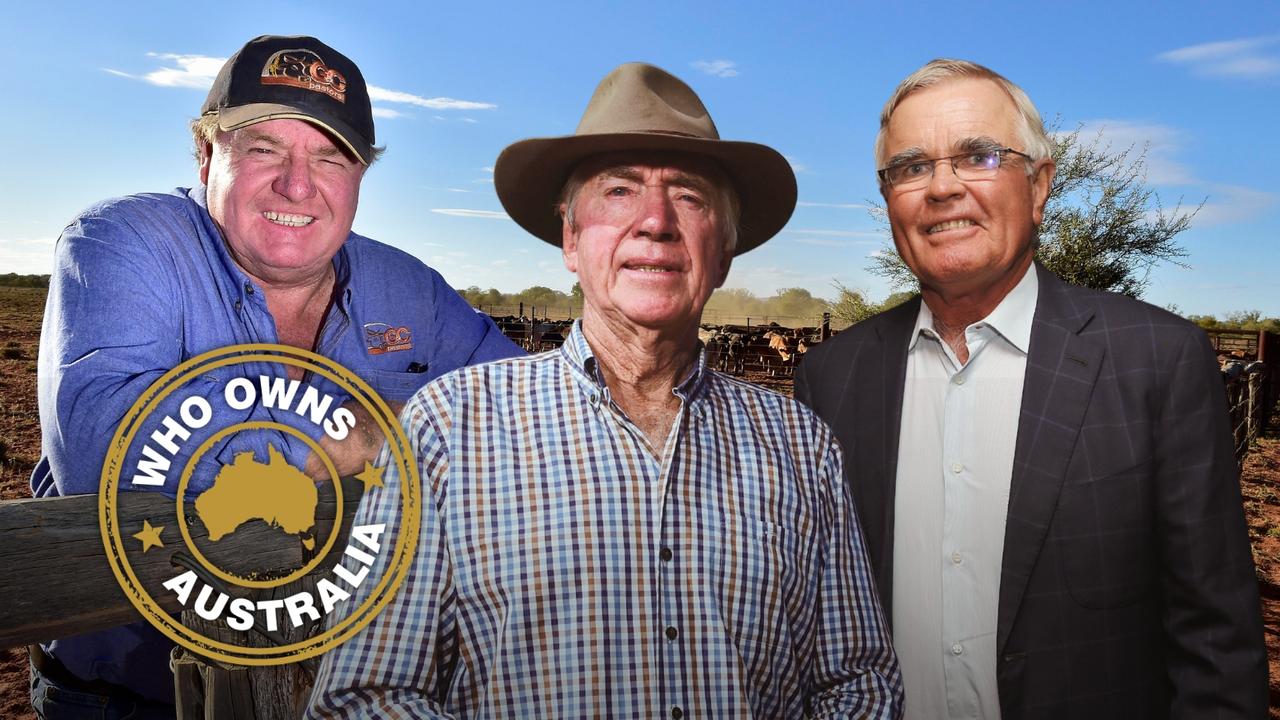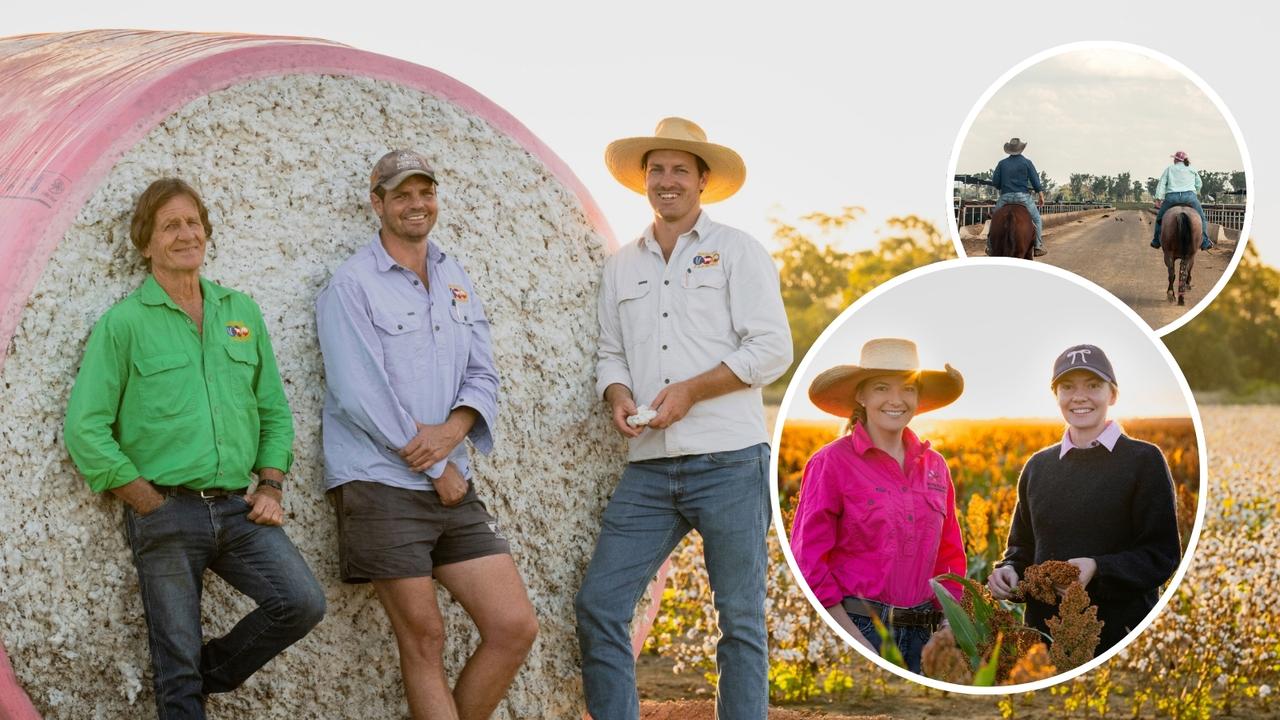Agriculture biologicals: New Edge Microbials banks on bacteria to boost broadacre sustainability
An Aussie company at the forefront of ‘nature tech’ development says biological inputs will be crucial for broadacre cropping.
It’s hard fact.
Centuries of chemistry and biology research shows bacteria and fungi play a vital role in broadacre crop production, directly improving nutrient availability and plant health.
Agribusiness visionary and NSW Riverina farmer Ben Barlow knows this fact not just from academic literature, but from personal experience.
“We’ve been using it for years on the farm; essentially it is an old science,” says Barlow, whose family has been cropping in the Riverina for the past 150 years.
The farmer-turned-agribusiness banker is now at the helm of a company called New Edge Microbials, which is harnessing beneficial bacteria and microbes – or “biologicals” as they are known – to help growers boost yields and crop health while steadily decreasing reliance on synthetic inputs.
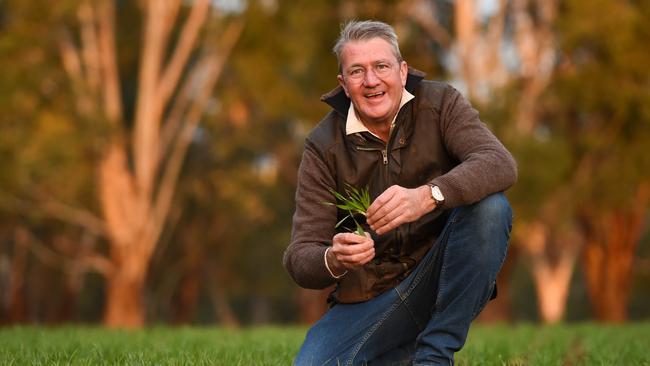
Barlow is confident the technology will be a major contributor to agriculture’s sustainability story, and he believes NEM can be at the forefront of the rapidly expanding sector.
The company’s growth so far certainly paints that picture.
The Albury operation is 20 years old, and had 12 employees when Barlow first took the helm in 2018, after buying an 80 per cent share with another family member and business partner. He had been looking for somewhere to invest capital after recently selling one of his property interests – a 30,000-hectare aggregation – to Paraway Pastoral Company.
Under his leadership, NEM has expanded to 60 staff, is currently investing $20 million in boosting its fermentation capacity to meet demand and is growing at 25 per cent year on year.
While seasoned broadacre croppers in Australia consider the “biological inputs” sector to be a bit new-age, NEM’s core product – rhizobia – is old school, used prolifically by growers globally. Grain growers, including Barlow’s family, have relied on the tiny bug for centuries.
Growing up on a mixed farm at Moama in Southern NSW, Barlow remembers how healthy soil of his childhood smelt – earthy, rich, almost sweet. A scent produced by the beneficial bacteria.
Discovered in 1888, rhizobia latches on to the roots of legumes and absorbs nitrogen – a critical plant nutrient – directly from the air. It then makes it readily available to the crop as ammonia, and also boosts N content in the soil, decreasing the need to apply nitrogen fertiliser to whatever crop is sown next.
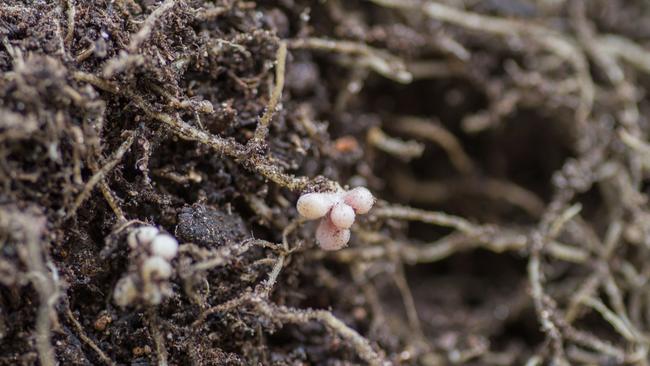
Australian farmers apply it as inoculant on about two million hectares of legumes annually.
Brazil, meanwhile, inoculates 116 million hectares of soybeans with rhizobia every year.
NEM now commands a 45 per cent share of the rhizobia market in Australia and is expanding here and overseas, with growers paying $10 a hectare for the product.
It is significant, but not a patch on the potential Barlow sees in global cereal markets if NEM can commercialise other bacteria that have similarly significant benefits for dominant crops such as wheat, barley and oilseeds.
“If we drop one product out of research and development into a 20 million-hectare domestic cereal business, at $10 a hectare, it implies it has a $200 million addressable market for that product, let alone if you have three or four in the pipeline,” he says. “So the size of the prize is very high.”
That is his vision for the future of the company.
AUSTRALIAN SCEPTICISM
Steering a vibrant young management team – all under the age of 43 – NEM is investing heavily in research and development, and savvy industry partnerships, to claim a place at the forefront of agriculture’s “nature tech” revolution.
NEM has already expanded its range to include other biological inoculants, fertilisers and stimulants, with benefits such as improving phosphorous availability and boosting plants’ water uptake.
One of its biggest hurdles to domestic adoption, however, is Aussie farmers’ sceptical streak.
“The biologicals industry in Australia is trailing Europe and the US by about seven to 10 years,” Barlow says. “Here we see it as ‘alternative snake oil’. Whereas in Europe and the United States there is a stack of science behind it. And there’s products in market and farmers are adopting it.”
“We survey farmers every year to get a gauge on their feeling on ‘biologicals’. If you talk biologicals, they are nervous.
“But when you talk about rhizobia in pulses as a biological, they get it … If you talk about inoculants for grain at sowing, they say that’s mainstream.”

Barlow says a decade ago the biologicals industry – including inoculants, fertilisers, stimulants and protectants – globally was worth $US100 million, and has ballooned 100-fold to $US10 billion today. Biofertilisers alone were worth $US1.3 billion last year. He expects the global market to be worth $US25 billion by 2030.
“I found out there are about 500 companies in this space, and only 40 or so of them turn over more than $US20 million. The rest do less,” he says. “Then I discovered that there are very few companies in this space that can actually take a microbe from a laboratory and turn it into product.
“There are lots of start-ups … but probably less than a 10-20 in the world that can actually go from end to end.”
That’s where NEM’s competitive advantage sits. In Australia, it has at least a decade head start on any start-up rivals, with exclusive access to a privately owned microbial library with 25,000 soil samples and 450,000 strains of indigenous bugs. It has 55,000 litres of fermentation capacity to manufacture products, with a new factory under construction to double capacity. And it has a network of more than 800 trusted distributors.
“NEM’s position and opportunity was unique,” Barlow says.
“With not many players at scale and high barriers to entry in Australia, we are leveraging our traditional knowledge forged in pulse inoculants, and are producing bacillus, streptomyces, azospirillum, trichoderma – a number of bacteria that we know from research has impacts on other crops.
“Some strains of bacteria and fungus that have shown potential in cereals, oilseeds and horticulture have now been acquired by the company, and are on applied projects to get them into a box over the next 5 years.
“We think of more products into more farmers to make them more sustainable and profitable, which implies more profits for us, which means we can spend more on research and develop more products. That’s our business model.”
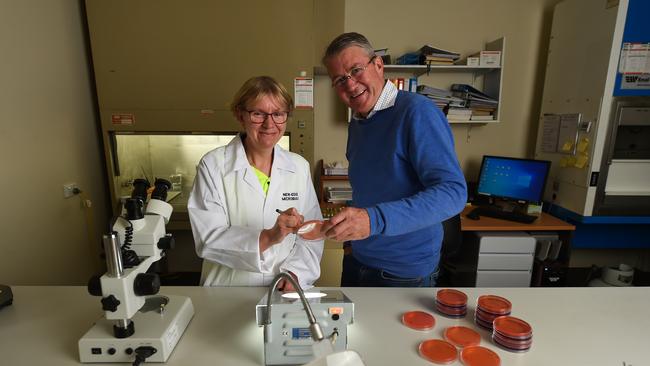
INVESTMENT IN RESEARCH TO BOOST RESULTS
Barlow anticipates the company could eventually invest $20-$30 million a year in research and development over the next decade, aiming specifically to find microbes that help crops deal with abiotic stress – caused by drought and environmental extremes.
The potential benefit for farmers is huge too.
The example of fertiliser savings for legume growers who inoculate with rhizobia is a perfect one.
In low-rhizobia soils and without inoculation, a grower might have to apply 100kg a hectare of nitrogen fertiliser, in the form of urea, to hit yield targets. At today’s prices, that would cost $180 a hectare. NEM’s rhizobia inoculant delivers the same nitrogen benefits for $10 a hectare.
Plus, there is no nitrogen run-off to worry about. And the manufacturing process is more environmentally friendly, requiring fermentation and freeze drying compared with the natural-gas intensive Haber-Bosch process that is used in the manufacture of urea, and accounts for 1 per cent of the global annual carbon dioxide emissions.
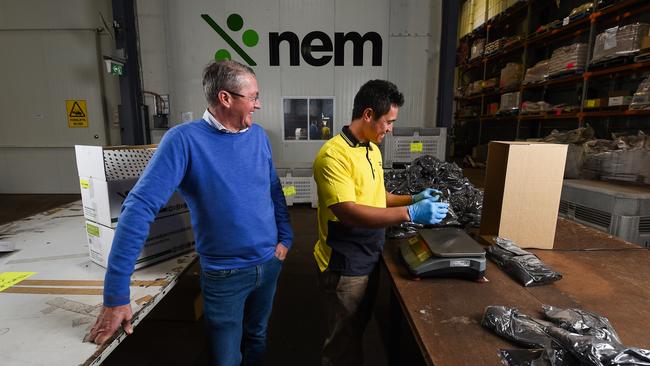
“This is both a cropping story and a good for the environment story and good for humanity,” Barlow says. “In the areas we farm, we have found beneficial bacteria that increase yields quite substantially in the face of low decile rainfall. That is one big area (we are looking at) – how do we grow better crops in drier years and make sure we maintain our profitability.
“Farmers in rotation are normally growing a legume, an oilseed and a cereal. We are dealing with the legume part today, and we are developing technology for the other two parts to increase soil nitrogen all round.”
While the cost savings and soil benefits are a pull factor for adoption, international legislation is a push that growers can’t ignore, Barlow says. The EU has mandated a reduction in synthetic chemistry and synthetic fertiliser use by 50 per cent by 2030, while Canada has mandated a 30 per cent reduction in nitrous oxide by 2030.
“And the US is doing similar things,” Barlow says. “We see protests about it, but in the EU there are 190-odd pending registrations of biocontrol or biostimulant products at the moment, and only three of conventional chemistry. Biologicals in the EU are becoming mainstream. That says something.
“It is not hard to predict that in 10 years’ time if we are still traditional and haven’t got some biological mix in our products, it’s not hard to see that we might be called out for having a very ‘dirty’ product because of carbon emissions or high chemical residues, and be trying to compete on a world market where other products are ‘cleaner’ and have a ‘kinder’ story. We have the luxury now of having the best science around what we are trying to achieve.”
Ben Barlow will be speaking at evokeAG 2023 on the topic innovation and farming, and how to tap into the strong demand from US farmers for Australian agtech solutions to help address challenges with automation, water and the application of biologicals to soil and plants.



